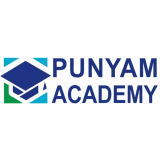This informal CPD article, ‘Why Organisations Should Have ISO 41001 Facility Management System? ’ was provided by Punyam Academy, an industry leader in training of international compliance standards.
Facility management is one of the fastest-growing management areas worldwide. It is an interdisciplinary business function, which aims to establish coordination between the demand and supply of facilities and services within all types of organisations. Facility management is vital for all organisations that engage in the management, operation and maintenance of the workplace, its assets and operational efficiencies.
What is ISO 41001:2018 Facility Management System?
It is a management system implemented by facility management organisations by fulfilling all the requirements of ISO 41001: 2018 standard. International Organization for Standardization (ISO) developed ISO 41001 standard, which was published in April 2018. This standard focuses on building, implementing, maintaining and improving an integrated facility management system in organisations so that business operations can be carried out effortlessly. It is the world’s first standard for facility management systems, against which a facility management organisation can be assessed and measured.
ISO 41001 management system specifies the requirements for the development, implementation and certification of facility management systems. It is also useful to provide a common global understanding and structure of facility management and improve the level of effectiveness and efficiency in the delivery of facility management services. It uses process approach and risk management philosophy for the use and care of assets. Process approach helps the facility management organisation in understanding and meeting the demand organisation’s requirements through an integrated planning process. While risk management helps to prevent, or reduce, undesired effects of risks, ensure business continuity and emergency preparedness and achieve continual improvement.
Who Can Implement ISO 41001:2018?
ISO 41001:2018 is a non-sector specific international standard, and therefore, it can be used worldwide by all organisations, or parts thereof, involved in facility management. Both public and private sector organisations can use it, irrespective of their type, size and nature. Organisations having other management systems in practice can also implement ISO 41001 facility management system. Integration with other management systems, such as ISO 9001 quality management system, ISO 14001 environmental management system and ISO 45001 occupational health and safety management systems is not a difficult task as all such management systems share a common structure and approach.
Why Implement ISO 41001:2018?
The present facility management market is highly fragmented and dominated by unorganised players. ISO 41001:2018 facility management system provides a structured framework that helps organisations to meet the upcoming market potentials and challenges. It helps organisations from the stage of strategic planning to tactical operation. We suggest organisations to implement ISO 41001:2018 facility management system as it will help your organisation in following ways:
- Implementation of facility management system enables consistent service delivery by ensuring efficient management, operation and maintenance of business assets.
- It also helps to reduce overheads and gain economies of scale.
- You will be able to deliver facility management services more effectively and efficiently meeting the needs and expectations of your clients/ demand organisation and other interested parties.
- Improves communication of requirements and methodologies in your organisation as well as your external communication with stakeholders.
- Improves cost-efficiency and effectiveness, thus, improving cost benefits to your organisation.
- Improves productivity, safety and health and well-being of your workforce.
- Enables you to consistently meet the needs of interested parties and applicable requirements.
- Helps to become sustainable in a globally-competitive environment.
Should You Go for ISO 41001 Certification?
Though ISO 41001:2018 certification is not mandatory for facility management organisations, achieving such a certification is recommended for gaining the following advantages:
Strategic alignment: ISO 41001 certification ensures that your FM approach and system are standard and integrated across the business and supports the strategic direction of your customers.
Improved safety culture: Certification makes sure that the facility management services you deliver are safe for employees and those who engage in the workspace and are likely to be affected by its operations.
Improved environment and sustainability: ISO 41001 Facility management system takes care of operations in the facilities as well as the impact that its operations have on the local and overall environment.
Competitive edge: ISO 41001 provides a framework and criteria against which facilities management organisations and teams can be measured as being appropriate for the organisations that they serve. Hence, ISO 41001:2018 certification of your facility management system will give you a definite edge over your competitors. ISO 41001 certification of your facility management system shows your dedication to continually improving your FM services so it adds value to your clients.
Conclusively, an ISO 41000 facility management system certification will help organisations to ensure that their facility management services are efficient and profitable and they can serve the best interest of the clients. It will also improve company image and give employees and clients a strong confidence on the facility management services delivered. Therefore, organisations engaged in facility management should implement, and get certified to, ISO 41001: 2018.
We hope this article was helpful. For more information from Punyam Academy, please visit their CPD Member Directory page. Alternatively, you can go to the CPD Industry Hubs for more articles, courses and events relevant to your Continuing Professional Development requirements.













